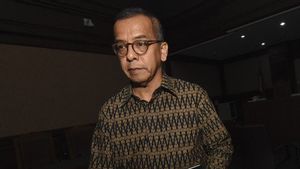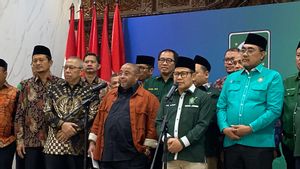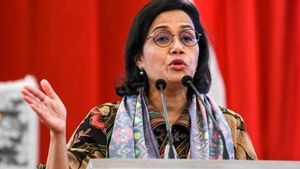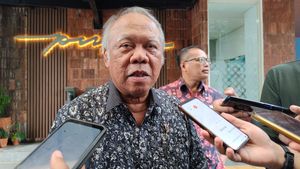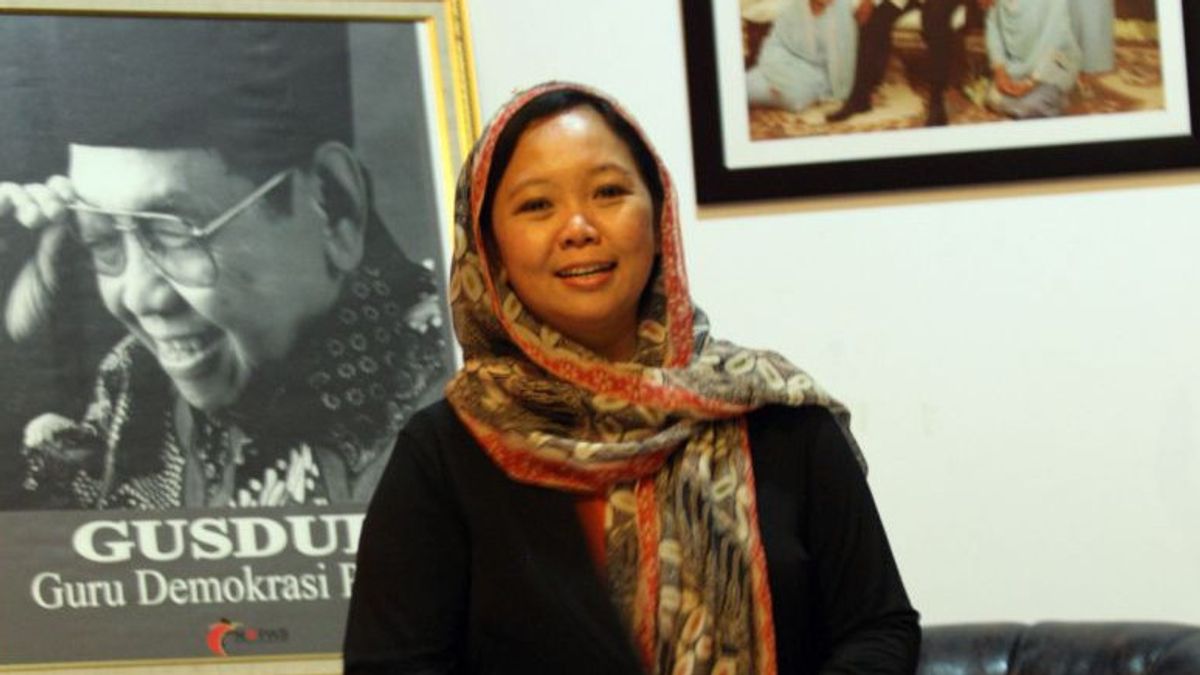
JAKARTA - The coordinator of the Gusdurian Indonesia National Network, Alissa Wahid, said that it is not permissible to take other people's religious rights and impose their religious teachings. This is because this is not in accordance with religious teachings and can hurt the sense of nationality and the values of tolerance.
This was conveyed in connection with the case of destroying offerings in the Mount Semeru area which was considered to have tarnished one's individual rights to freedom of worship and belief, as well as hurting the values of diversity and tolerance that have flourished in Indonesia.
"So it's not about whether offerings are haram or not. We can have different opinions about that (offerings), but what's clear is that we shouldn't take other people's rights. And when someone imposes their teachings on other people in this country, it's a violation," Alissa said, as reported by Antara in Sleman in a written statement received Tuesday, January 18.
This woman, who has just been elected as Chair of the PBNU Tanfidziyah 2022–2027, saw that there were several interesting things that were found in the incident that damaged the offerings, namely the number of groups that supported uncivilized, intolerant actions and even became a debate among netizens.
"Why do so many support it? Because they think they are carrying out religious orders. But he also forgets that respecting the rights of others is also a religious order," she said.
Likewise, including orders to obey regulations, build a good life together and build the benefit of the people, according to her, are merely part of religious teachings. Because it is unethical if such speech or behavior is considered as freedom of opinion, expression, and thought.
“In the Qur'an it is stated, 'la iqro hafidzin', namely there is no compulsion in (adhering to) religion (Islam). That's a guide, so freedom of opinion is right, but it's not the same as acting as you wish," she stressed.
The eldest daughter of Abdurrahman Wahid (Gus Dur) further said, in the Al-Quran Surah Al Maidah verse 8 it says 'And never, your hatred of a people, makes you act unfairly. Just because justice is closer to piety'.
"A person who is intolerant, does not understand the rules of religious life that have been outlined in Islam. The issue of justice is clearly stated in the Koran," explained Alissa.
She reiterated that people should not merely interpret something textually or follow one command to be practiced, but do not understand the meaning and value behind it, so that they do not get the rules of religious life that have been passed down in Islamic teachings.
"So we can't just guide one commandment about eradicating polytheism. And most people often just stop at the practice but don't understand its value," she said.
For this reason, Alissa also reminded that there are at least two things that moderate groups can do to be wise when facing the phenomenon of cases of intolerance and hate speech in the name of religion.
“First of all, moderate figures and religious leaders need to express their opinions, because if they don't, then it seems as if they are considered true. So moderate figures and religious leaders need to advise and straighten shallow religious understandings like that," she said.
SEE ALSO:
Secondly, according to her, the need to strengthen relations between community groups who still want to care for the Indonesian nation because she sees there are still many groups who only want to care for their groups.
"So it's important that we speak out loud that we don't want actions like this to thrive in Indonesia. I hope this will be able to gather and raise voices against the practice of intolerance in our motherland," she said.
On the other hand, she expects the government's active role in encouraging efforts to protect the motherland from intolerance practices and hate speech in the name of religion, ethnicity, and even race, in order to create a good environment for the nation's future generations.
"From the government's side, it is also necessary to take firm action and make the case of intolerance a lesson, as well as strengthen the ranks as has the RAN-PE (National Action Plan for Combating Violent Extremism) and the Map of Religious Moderation," she said.
Finally, she advised all parties to work together to make the two big tools a success. This is to ensure that people have religious views based on justice, balance, obey the constitution and protect human dignity and the common good.
"If religious moderation sows its seeds, then the harvest is a moderate religious practice, while RAN-PE focuses on extremism with or without violence, so upstream and downstream can be obtained," she concluded.
The English, Chinese, Japanese, Arabic, and French versions are automatically generated by the AI. So there may still be inaccuracies in translating, please always see Indonesian as our main language. (system supported by DigitalSiber.id)


